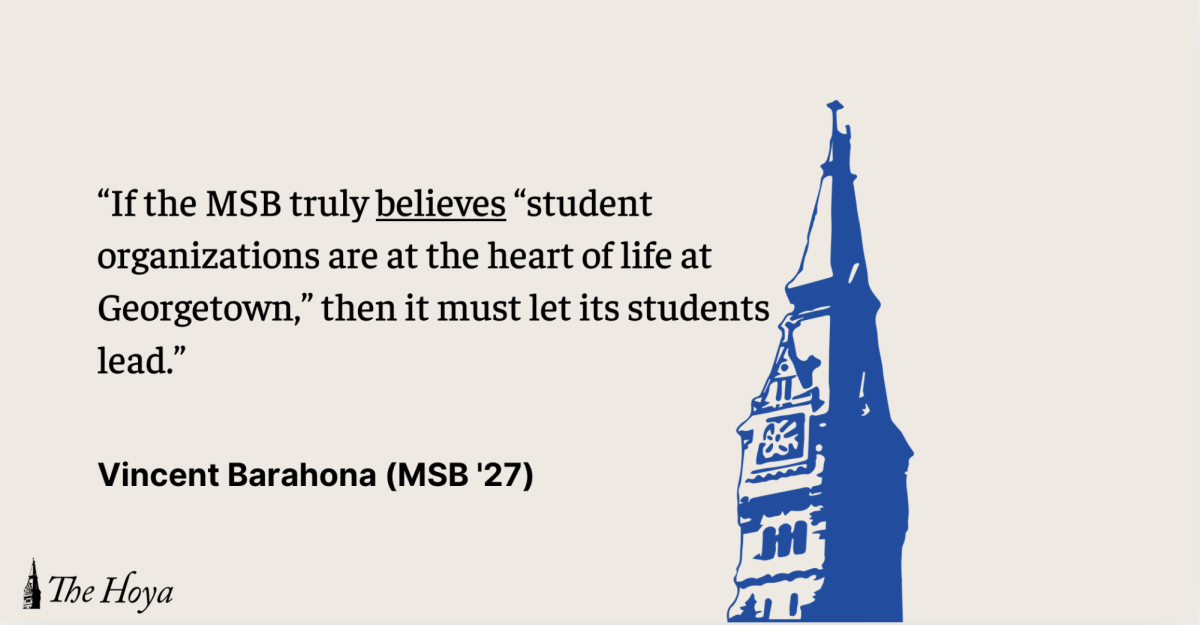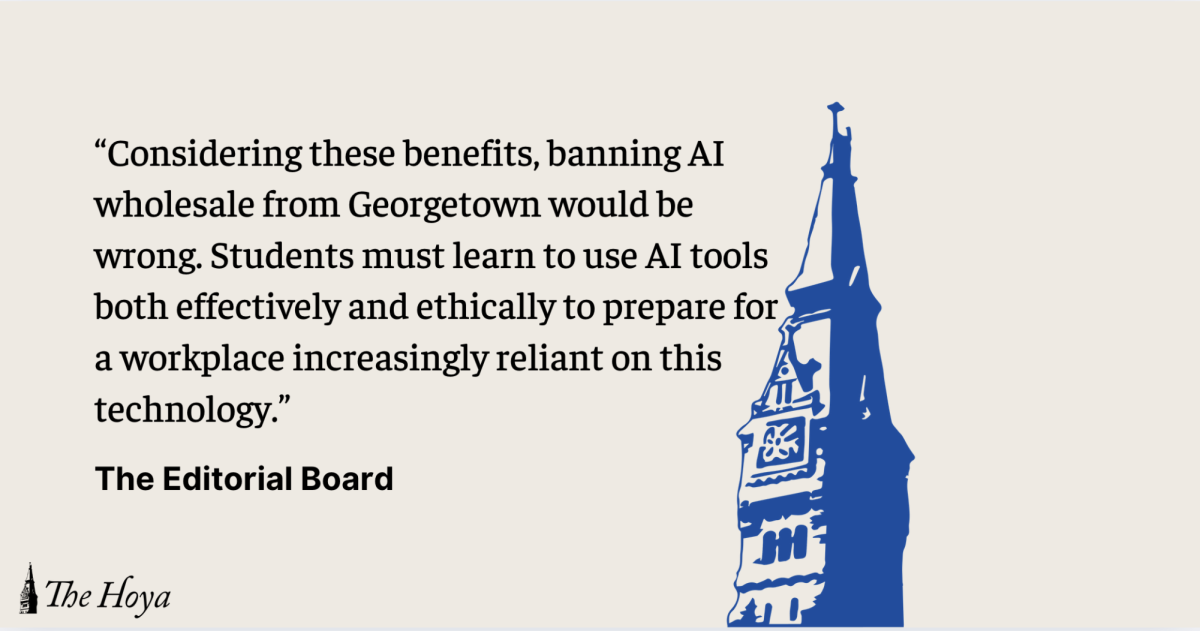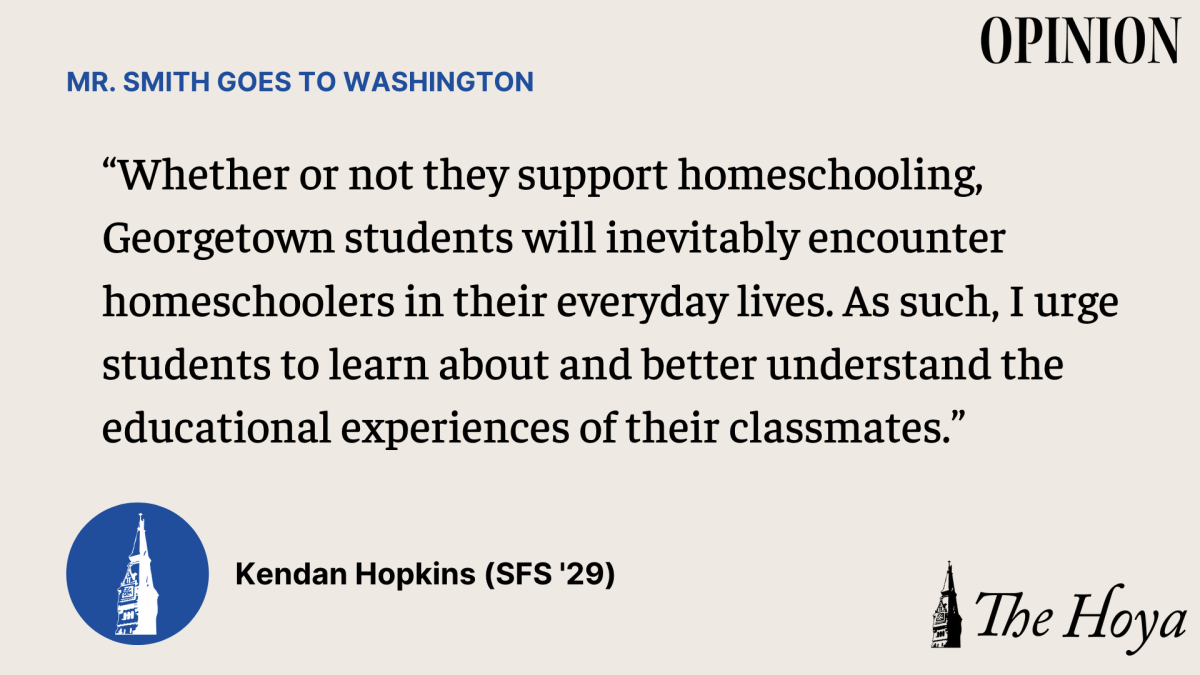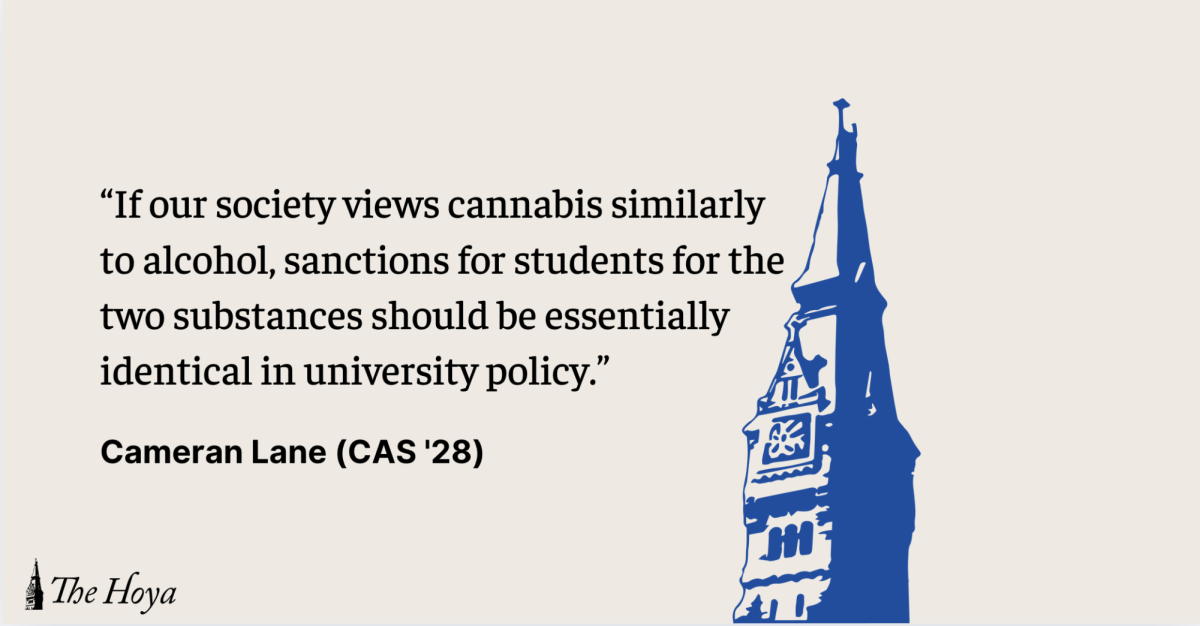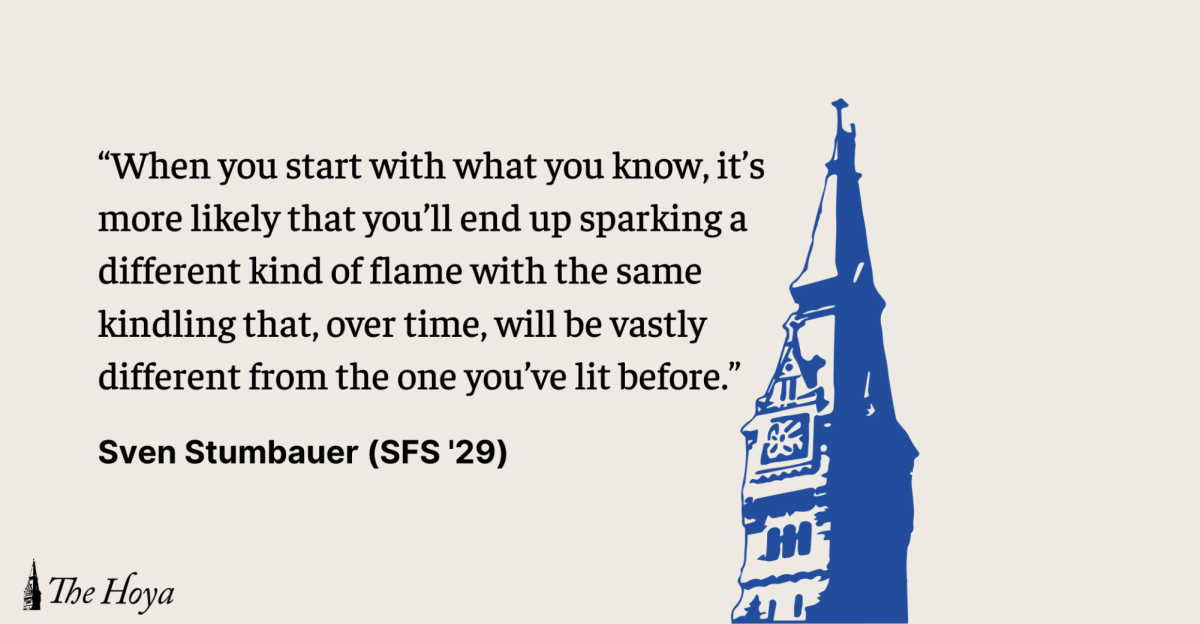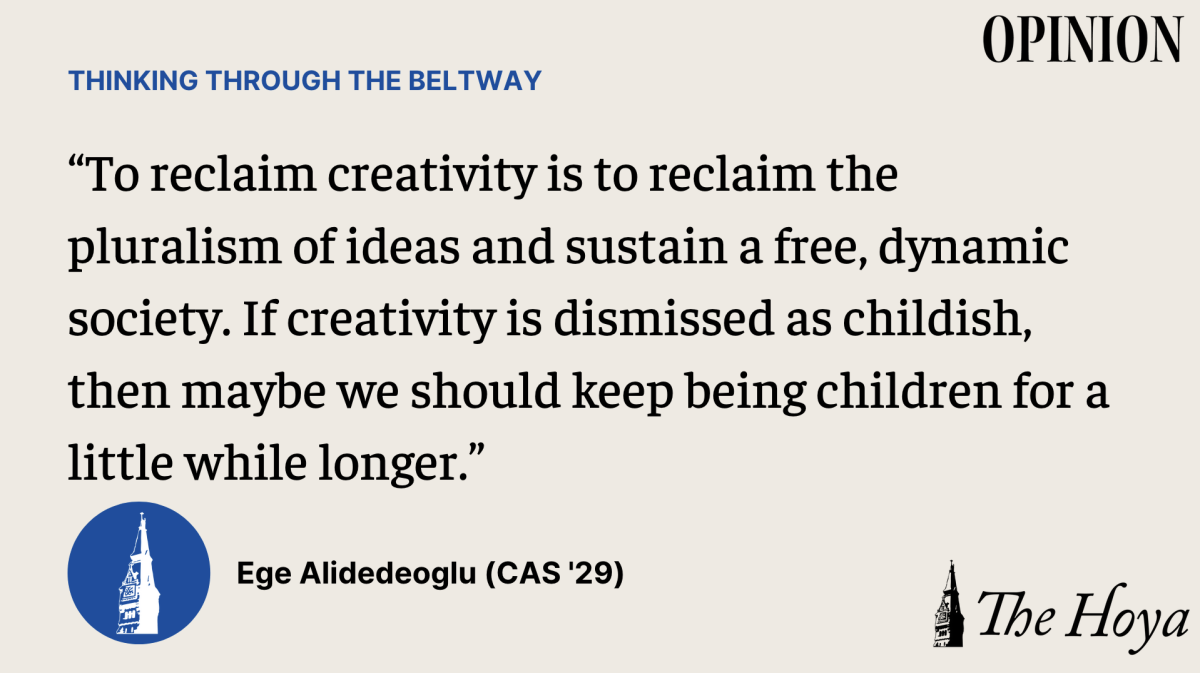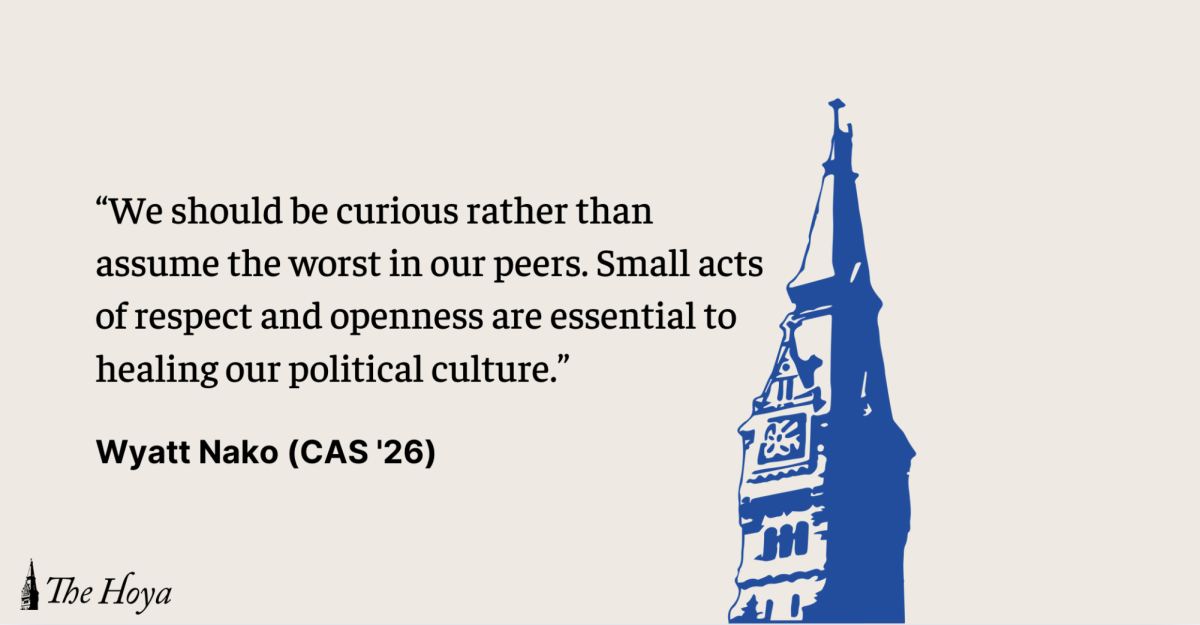In Georgetown University’s McDonough School of Business (MSB), undergraduate clubs are beacons of student life, intended to foster student leadership, professional development and personal growth. Unfortunately, failures of the very body designed to support these clubs cause them to fall short of their potential.
The McDonough Student Advisory Board (MSAB) oversees the funding, training and support for all undergraduate clubs housed within the MSB. As the 2024-25 MSAB new club development chair, I witnessed firsthand how this advisory board fell short of its purpose.
Miscommunication between members was common, leading to decisions made without advance notice or a proper quorum. For example, in Fall 2024, the MSAB denied access to benefits (ATB) status — which provides university recognition and resources to student clubs — for two potential clubs with the vote of just two of the seven MSAB members, a violation in MSAB procedure.
We must demand reform or replacement for the current system so the MSAB can support the organizations that make MSB student life special.
Today, MSB student leaders echo my frustrations, recognizing the need for student-led change.
James Beit (MSB ’26) is the former president of the Philonomosian Society, which left the MSAB this semester. He said he experienced a drastic lack of communication from the MSAB.
“It was the world’s worst game of telephone,” Beit wrote.
This poor communication is perhaps most pronounced in the board’s general membership policy, requiring any MSB club seeking ATB to be open to the entire undergraduate population. While inclusivity is a worthy pursuit, its blind application undermines the specialized and highly-sensitive work many MSB student organizations produce.
Anvitha Reddy (SFS ’26), CEO of the Hilltop Microfinance Initiative (HMFI), said the general membership policy drove HMFI to leave the MSAB.
“Much of our work, such as underwriting loans and handling sensitive client information including Social Security numbers, is highly personal, and we did not feel comfortable sharing it with large groups of general members whose long-term commitment to HMFI was uncertain,” Reddy said.
“Because general members could not engage in tangible work, we found it difficult to find ways this program would be beneficial, helpful and additive to the first-year experience,” Reddy added.
When real clients and data are on the line, general membership is not inclusive — it is irresponsible. Furthermore, while the general membership policy works when paired with guidance and training, most clubs lack the resources to make it meaningful, frustrating both club leadership and members.
To solve this problem, the MSAB must differentiate between training-oriented clubs — like Smart Women Securities or First Generation Investors — and client-facing clubs — like Hilltop Consultants. The first group can focus on broad access and mentorship, while the second can be selective to ensure the quality of their work. It is the best of both worlds: genuine inclusivity and uncompromised excellence. Forcing all clubs into the same rigid mold serves no one.
Undergirding these policy failures is a deeper structural flaw. Unlike in the Student Activities Commission (SAC) or the Media Board, which oversee clubs beyond the MSB, administrators have the final say in all MSAB decisions, leaving student leaders with little autonomy in designing programming. As such, the MSAB fails to reflect the ever-changing needs of its organizations. If the MSAB is to serve its purpose, it must change in three key ways.
First, MSB club leaders must be allowed to vote for MSAB members rather than deans appointing them. The current system enables favoritism and hinders leadership development. As an alternative, consider past proposals for student government such as “The Yard” as a blueprint. Here, MSAB board members would be elected from among the leadership of clubs, and no student organization would hold more than one seat to ensure fairness. Students deserve to choose who represents them.
Second, the MSAB must reinstate monthly assemblies in which club leaders can voice concerns and collaborate. During my time on MSAB, there were no assemblies, severely hampering communication. Reinstating monthly assemblies would rebuild the MSAB’s accountability and help execute its mission of fostering student leader collaboration.
Finally, the MSAB must be rebranded. At Georgetown, the name “MSAB” has become synonymous with ineffectiveness because many see it as a board that no longer works for the average MSB student and one evidently not run by students. A new name constructed around the genuine reforms noted above will mend fractured trust.
These reforms are not radical; rather, they are rooted in Georgetown’s long tradition of student governance. The MSAB has great potential, and I still believe in its ideals; however, in its current iteration, Georgetown’s student leaders must consider replacing the MSAB with a new advisory council altogether — one which prioritizes the needs of its clubs over the agendas of their administrators. If the MSB truly believes “student organizations are at the heart of life at Georgetown,” then it must let its students lead.
Vincent Barahona is a junior in the McDonough School of Business and the School of Foreign Service.


